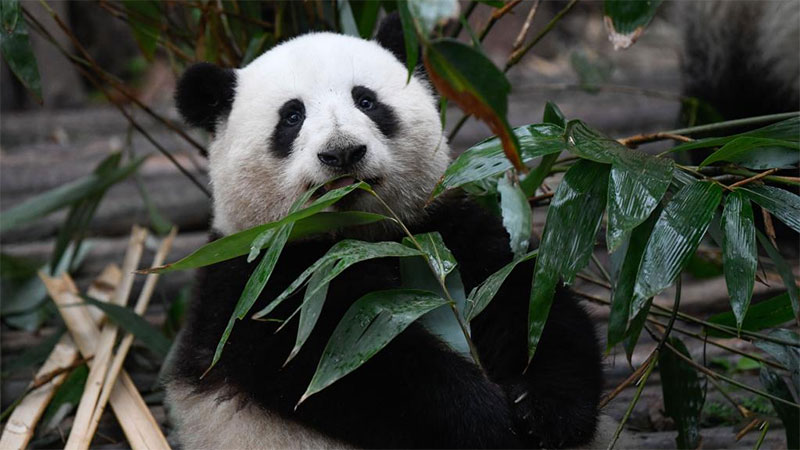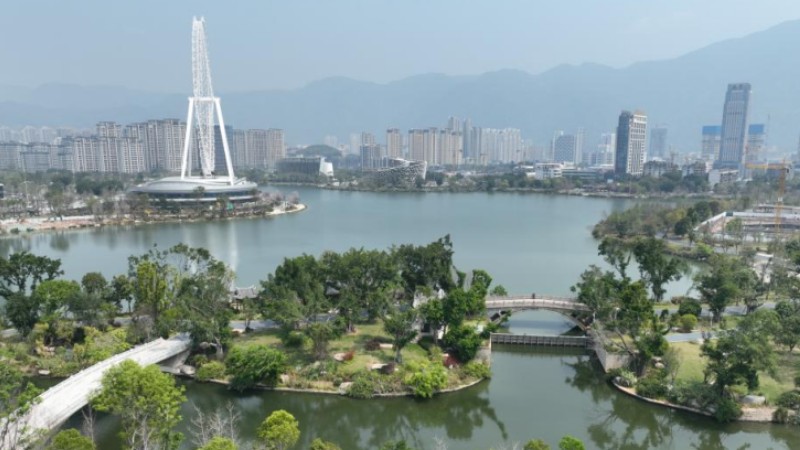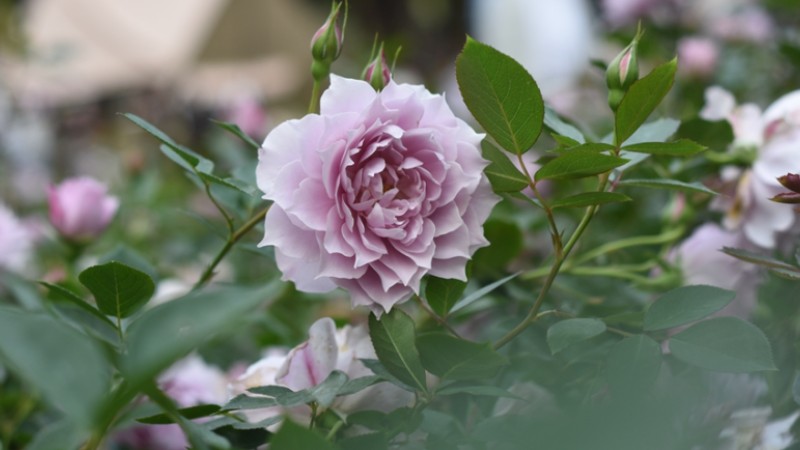Three questions about Western bitterness over Chinese President Xi Jinping’s state visit to Russia
As Chinese and Russian presidents met in Moscow, Western politicians had quite a few fraught days. What could they be talking about other than countering the West, they reasoned.
The egotism is plain in their framing of the visit: “Xi and Putin talks were rooted in both nations’ mutual hostility to US power” ; “his trip to Moscow was in the service of weakening US and Western power”; “Xi and Putin are united on a core foreign policy priority – discrediting and even dismantling a world order”.
But for a rich and long relationship like that between China and Russia, such a simplistic spin is hardly convincing. Three obvious questions immediately come to mind.
Are neighbors not allowed to visit each other?
China and Russia are joined by 4,300 kilometers of borders. About 20 Chinese port cities thrive on the winding lines. Russians roam around the cities sampling Chinese cuisine, enjoying a sauna, having a night party, or relieving their bodily sores in a Chinese acupuncture session. In one city alone, Suifenhe, about 30 passenger buses and 140 trucks run across the border every day.
Across Russia, roughly 150,000 Chinese work on construction, run businesses or pursue academic studies. China’s national teams for ice hockey, handball and snowboarding would go to Russia for training. Last year, news of Russian world gymnastic champion Maria Paseka coming to coach the Chinese team thrilled many fans in China.
The close ties between the neighbors are naturally reflected at the top level. Since 2013, President Xi and President Putin have met 40 times. In fact, starting from the mid-1990s, China and Russia have been keeping a tradition of annual presidential visits, except during COVID. Is this all supposed to stop because a handful of Western politicians disapprove? You don’t see such dramatic reaction from them when two other neighbors in Asia visited each other just this month.
Is normal life not allowed to carry on?
Russians and Chinese are long used to having each other in their lives. In Russia’s Ussuriysk, a sprawling market serves as the largest distribution center of Chinese goods in Russia’s Far East. There are more than 6,000 stands in the market; 90 percent are run by Chinese business people. More Russian customers like Chinese cars these days. In 2022 alone, 487 Chinese brand car dealerships were opened in the country.
Russian wine, tasting as fine as those from France and Italy but costing much less, is winning Chinese customers. Russia accounted for one-fifth of China’s chocolate and candy imports in 2021. The Chinese also have a weak spot for Russian caviar, beef and ice cream. In trade in services, such as transportation, logistics, finance and engineering, Chinese and Russians find each other partners of choice. Last year, a record 190.27 billion US dollars was reached in bilateral trade, up by almost a third.
Trade is not just numbers. It involves people. Hundreds of millions of them. Some enjoy their life better thanks to it. Many others make a living out of it. Are all their lives supposed to be halted or even destroyed by political games?
Are peace and democracy becoming unsayable?
For some Western politicians, the most unnerving thing seems to be a call for world peace and democracy in international affairs by two strong voices like that of China and Russia. When the presidential meeting had only just began, a most interesting political comment went viral on social media — “the United States would deem ‘unacceptable’ any proposal for a ceasefire in Ukraine made during Chinese President Xi Jinping’s visit to Moscow.” Yes, before anyone could say anything about peace in Ukraine during this visit, the United States made it clear it would not give it the slightest consideration.
Right before his visit, President Xi wrote on a Russian newspaper, “No country is superior to others, no model of governance is universal, and no single country should dictate the international order.” In their joint statement, China and Russia reaffirm their commitment to a multi-polar world, democracy in international relations, and sustainable development of all countries. Highlighting the fact that emerging markets and developing countries are gaining strength and there are more regional powers determined to uphold their own legitimate interests, the two countries criticized hegemonism, unilateralism and protectionism.
This is not only the consistent position of China and Russia, but a common, repeated call from the large number of developing countries, who make up the majority of the international community. If some find this disagreeable, or a challenge to the world order they want, it only makes them a dictator and bully.
China and Russia are each other’s biggest neighbor. They are also permanent members of the United Nations Security Council and countries with significant influence in the world. There are a lot of things the two leaders can and should talk about.
Alice Roosevelt Longworth, the daughter of President Theodore Roosevelt, was reported to have said that her father “always wanted to be the corpse of every funeral, the bride at every wedding and the baby at every christening". And Just like that, some believe they are the topic of every diplomatic conversation going on around the world. Perhaps it is a guilty conscience that is keeping them fraught.
(Yi Fan is an international commentator based in Beijing)
Photos
Related Stories
- Xi reassures foreign firms on opening-up
- Interview: China's Global Civilization Initiative aims to foster diversity-based unity, says Iran's party leader
- Build community with shared future, create better world
- China and Russia are not Cold War-style allies. Here's why.
- From sapling to flourishing tree, vision of shared future thrives
- China's diplomacy to make 'more global contributions'; Vision on community with shared future implemented with real actions and notable results
- Russia reiterates adherence to one-China principle
- China expands its toolbox for global unity
- In Numbers: China-Russia trade injects strong momentum into bilateral ties
- Xi's Russia visit promotes global strategic stability
Copyright © 2023 People's Daily Online. All Rights Reserved.









